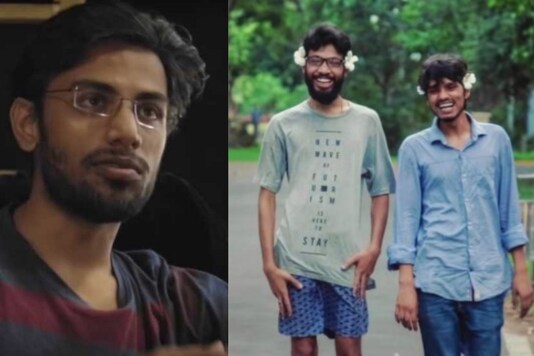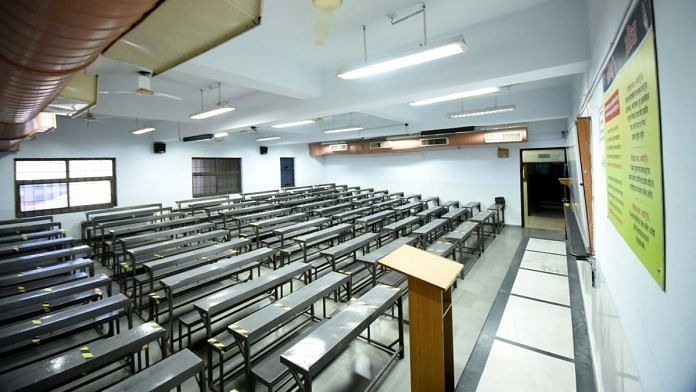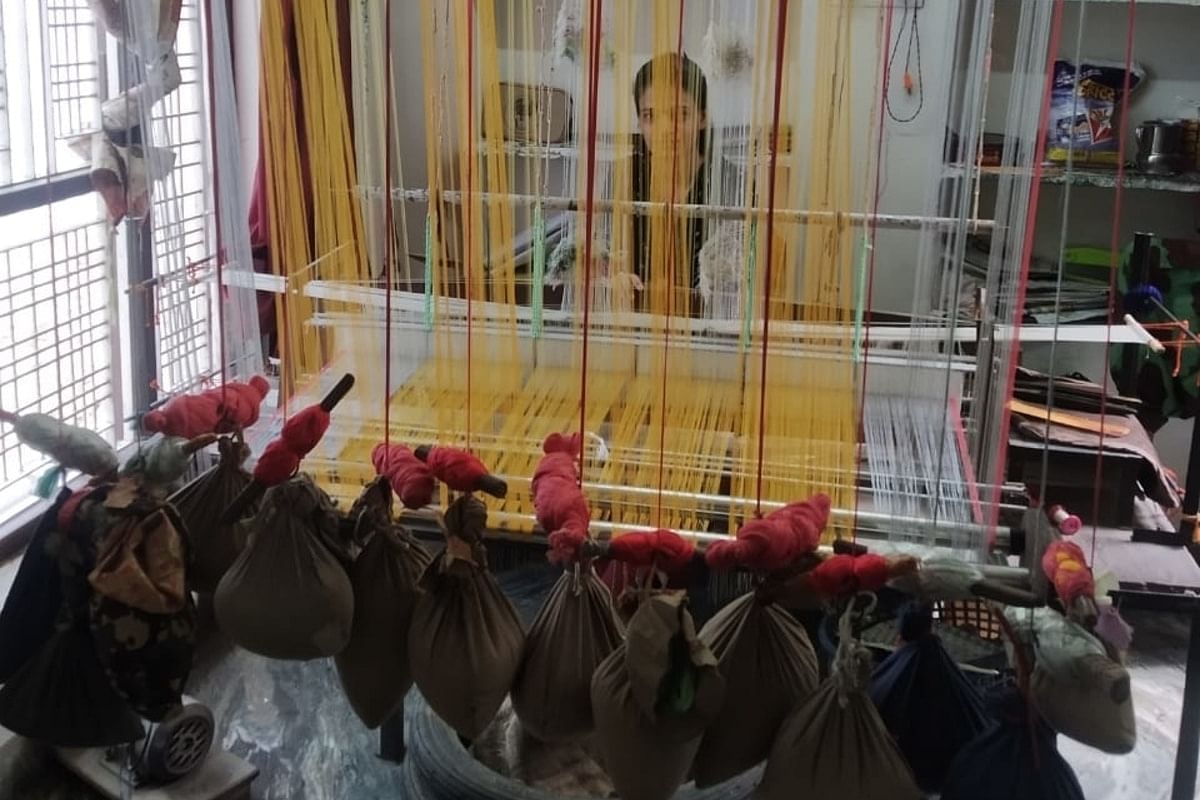Nobody gets the IIT story right, 3 Idiots, TVF, to Netflix’s Alma Matters
Alma Matters places students before you but forgets to critically contextualise what they are saying about toxic IIT culture, or more importantly, not saying.

23 May, 2021
 IIT-Kharagpur | Screengrab from Alma Matters, Netflix
IIT-Kharagpur | Screengrab from Alma Matters, NetflixAlma matters, but so do real issues that never make it to India’s OTT platforms. Bollywood’s 3 Idiots may have been your introduction to the horrors of the Indian Institutes of Technology, but our YouTube generation is seeing a lot more campus content. If you’ve seen one, you have seen them all — whether it is TVF’s Kota Factory or the erstwhile AIB’s Honest Engineering Campus Placements or Netflix’s Mismatched. If Bollywood and YouTube managed to give viewers a glimpse into the dark secrets of suicides at IITs, a Netflix docu-series should have taken it one notch higher. But it ends up just adding to IIT nostalgia and the cult around the coveted institute.
Yes, Netflix’s Alma Matters, based on IIT Kharagpur, covered students’ mental health, suicides, the rat race — first to get in and then get to the top of your class — and competitive placement culture, but it felt more like a check-box attempt rather than a deep dive.
When will we talk about the undeniable casteism, deep-rooted patriarchy, and institutional destruction of mental health on India’s much-sought-after campuses?
Also read: Intense anxiety, burnout, entrance exams — education in India needs an overhaul
A hotbed of mental health issues
“Sir, our parents took good care of us for 20 years and sent us here thinking that we would come back home with a good degree. They could keep me alive for 20 years, but you can’t for 5 years? You’re blaming the parents who aren’t even present here! Is this not a failure of the system as well, sir?” said an impassioned student to loud applause during an open house in IIT Kharagpur to address a spike in student suicides in late 2017.
Made by two IIT alumni, Pratik Patra and Prashant Raj, Alma Matters places students before you but often forget to critically contextualise what they are saying, or more importantly, not saying.
The interviews lend themselves to bits and pieces of great moments that could have been expanded upon to truly skewer IIT Kharagpur for the flaws in the way it is run. Having a photo of Biswa Kalyan Rath on your show’s thumbnail may get you clicks, but the campuses have a lot more to say.
The greatest highlight of the series is the sincere, albeit brief, focus on students’ mental health, with multiple students directly criticising the university’s administration for its alleged inaction and apathy in providing the necessary medical facilities and support.
A Hindustan Times report from 2020 quotes a Mental Health Day survey, in which a massive 85 per cent of the respondent students at IIT Bombay considered mental health to be a common issue on campus. More alarmingly, 71.3 per cent cited academic pressure as a contributing factor to their mental health problems, while 52.2 per cent cited concerns over their professional future, which is tied to the outcome of campus placements.
Following the open house scenes in the Netflix series, a student named Srinidhi Moodalgiri mentions how unexpected it is to see students “hang a rope around the fan and just like…quit everything.” It is nonchalant explanations like these that showcase how commonplace desensitisation is in this ecosystem — but a self-preservation tactic for many students like Moodalgiri to help them survive the high-pressure environment. But wish I didn’t have to wait until the final episode to see that.
Also read: ‘Everything is abnormal’ at IIT Guwahati, students allege they’re being driven to suicide
IIT-driven content
There is much to be desired in the Netflix show’ foray into the issues that plague India’s most prestigious university. But Alma Matters is not the lone offender here. The spate of IIT-focused series may touch upon issues of mental health, alienation, loneliness, and pressure faced by students, but they are often reduced to tropes and catalyses to forward storylines.
Arguably at the forefront of the student-focused content trend has been the YouTube channel-turned production company The Viral Fever (TVF). In the years following the success of its 2015 comedy-drama TVF Pitchers, which satirised startup VC culture, the company produced a glut of series on student life as well as life after college, TVF Bachelors being a notably successful and comedic, take.
However, its first real attempt at providing a serious look into high-pressure education environments was the 2019 Kota Factory. The series focused on high school students taking coaching classes for JEE preparation. But much like Alma Matters, it was seen by viewers as a relatable take on the experiences of young students, made by IIT alumni. However, as the show went on, it appeared to be more interested in fulfilling contractual obligations with its sponsor Unacademy.
As a result, we got a highly contrived story bogged down by product placement that, in its attempt to find a happy or hopeful ending for its protagonists dealing with stress and pressure, ended up trivialising those issues.
What is more depressing is that this appeared to be a successful tactic for TVF financially, as the production company has repeated the same process with its latest iteration with the sponsor, this time on the UPSC exam.
From the trailer and hype created around Alma Matters, it appeared as if Netflix was trying to give us a new outlook on IITs. But what it ended up creating was only a gateway into these issues and some nostalgia.
On the similarly hot button issue of gender bias, for instance, the filmmakers introduce the problem in an insightful way by means of a student criticising the “inherent bias” behind the fact that IIT Kharagpur has had no female student Vice Presidents, and very few candidates, in its nearly 70-year history. However, except for a speech given by Spandana, a successful General Secretary candidate, and some light calling out of casual sexism, little is said about the university’s handling of any serious cases or allegations of sexual abuse.
There is also little connection made between the huge disparities in men and women on campus to the broader admissions process or governance of the university.
But Alma Matters, for all its flaws, is a more honest look into the issue of mental health, and takes a small step forward in painting a picture of what greater societal sensitivity towards such issues should look like.
One mainstream film that understood this, to an extent, was the Sushant Singh Rajput-starrer Chhichhore (2019), which was partly set in IIT Bombay and focused on interpersonal relationships, the high-pressure JEE coaching process, and briefly, on mental health issues. More need to go down this route.
Ultimately, the onus should not be on IITians-turned-filmmakers to find solutions or be the forerunners for the cause of mental health awareness, but it is their responsibility to not mislead viewers or trivialise issues. If only this was more widely understood.
Views are personal.
 Dialogue from the TVF Show ‘Kota Factory’. Translation: Children leave Kota after two years, but the effect of Kota on students stay for many years.
Dialogue from the TVF Show ‘Kota Factory’. Translation: Children leave Kota after two years, but the effect of Kota on students stay for many years.
 An empty classroom in a leading coaching centre in Kota. | Photo: Rohit Jain Paras/ThePrint
An empty classroom in a leading coaching centre in Kota. | Photo: Rohit Jain Paras/ThePrint A group of friends seen doing group studies while following Covid-appropriate behaviour in their hostel. | Photo: Rohit Jain Paras/ThePrint
A group of friends seen doing group studies while following Covid-appropriate behaviour in their hostel. | Photo: Rohit Jain Paras/ThePrint A deserted entrance to a coaching institute in Rajiv Gandhi Nagar, Kota. Staff and students are now operating from home and hold either live or pre-recorded sessions online. | Photo: Rohit Jain Paras/ThePrint
A deserted entrance to a coaching institute in Rajiv Gandhi Nagar, Kota. Staff and students are now operating from home and hold either live or pre-recorded sessions online. | Photo: Rohit Jain Paras/ThePrint An empty classroom in a leading coaching centre in Kota. Photo: Rohit Jain Paras/ThePrint
An empty classroom in a leading coaching centre in Kota. Photo: Rohit Jain Paras/ThePrint A weaver seen at Shabbir Hussain’s shop amid the lockdown under which the Rajasthan government has allowed production in factories. | Photo by special arrangement
A weaver seen at Shabbir Hussain’s shop amid the lockdown under which the Rajasthan government has allowed production in factories. | Photo by special arrangement